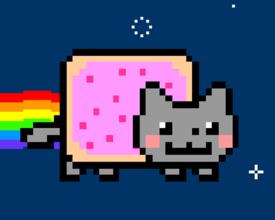Ketosis This is my best way of describing it

caminoslo
Posts: 239 Member
I feel like when I am ketosis, its similar to sweating the way I do and feel when I eat garlic. Of course it isn't garlic but its more sweating sensation from fat. Anyway
What does ketosis feel like for you?
What does ketosis feel like for you?
0
Replies
-
Do you mean you smell like garlic? In ketosis I get the usual stuff, weird, sweet taste in my mouth and bad (for lack of a more lady-like word) B.O. Even with a daily shower and twice daily deodorant application, I can detect B.O. by the end of the night.
I also have a lot of energy, rarely feel hungry, and sleep very well while in ketosis.0 -
No I dont smell like garlic, I feel like I sweat like i do when I eat garlic0
-
So I have a question for the ketosis folks since I have ya here. Yeah, I am lazy but there is so much craze around it that it is hard to find the answer to simple questions sometimes without a whole lot of funk and fluff.
So from what I understand, in order to get into ketosis don't you have to strict low to no carb/high fat and protein diet? If so, doesn't this wreck havoc on your insulin levels? Doesn't that severely retard muscle development? The reason I am asking is I usually see crossfit people toting the ketosis diet and I can see how it would be beneficial for fat loss but confused as I believe low insulin levels really have an impact on muscle growth which is what crossfitters are really aiming to do.
Anyone care to explain what I am missing.
(and no, I am not being rude or judgmental, I am honestly curious on what I am missing)0 -
Bumping for curiosity..sorry for the topic derail.0
-
So I have a question for the ketosis folks since I have ya here. Yeah, I am lazy but there is so much craze around it that it is hard to find the answer to simple questions sometimes without a whole lot of funk and fluff.
So from what I understand, in order to get into ketosis don't you have to strict low to no carb/high fat and protein diet? If so, doesn't this wreck havoc on your insulin levels? Doesn't that severely retard muscle development? The reason I am asking is I usually see crossfit people toting the ketosis diet and I can see how it would be beneficial for fat loss but confused as I believe low insulin levels really have an impact on muscle growth which is what crossfitters are really aiming to do.
Anyone care to explain what I am missing.
(and no, I am not being rude or judgmental, I am honestly curious on what I am missing)
Low insulin levels = low energy status = inhibition of protein building signalling molecules.
However, insulin isnt the only thing that affects muscle building - load itself stimulates protein synthesis.
So in summary, its a pro/con balance. Typical approach of cycling bulking with lots of energy gaining fat and muscle then cutting loosing fat and muscle OR consistent smaller gains in muscle with minimal gains in fat.
Choice is yours I guess0 -
So I have a question for the ketosis folks since I have ya here. Yeah, I am lazy but there is so much craze around it that it is hard to find the answer to simple questions sometimes without a whole lot of funk and fluff.
So from what I understand, in order to get into ketosis don't you have to strict low to no carb/high fat and protein diet? If so, doesn't this wreck havoc on your insulin levels? Doesn't that severely retard muscle development? The reason I am asking is I usually see crossfit people toting the ketosis diet and I can see how it would be beneficial for fat loss but confused as I believe low insulin levels really have an impact on muscle growth which is what crossfitters are really aiming to do.
Anyone care to explain what I am missing.
(and no, I am not being rude or judgmental, I am honestly curious on what I am missing)
Low insulin levels = low energy status = inhibition of protein building signalling molecules.
However, insulin isnt the only thing that affects muscle building - load itself stimulates protein synthesis.
So in summary, its a pro/con balance. Typical approach of cycling bulking with lots of energy gaining fat and muscle then cutting loosing fat and muscle OR consistent smaller gains in muscle with minimal gains in fat.
Choice is yours I guess
There's also the fact that protein and ketones (at a certain level) also trigger an insulin response in the body, so ketosis does not mean no insulin (in fact, if it weren't for insulin, ketosis would be dangerous). Whether they promote muscle growth as much as the insulin response from carbs, I don't personally know. It seems to me that it produces enough to still allow for muscle growth, though it may be slower than on a bulk/cut cycle type of routine (like michael said, though, it's slower gain without much fat gain).0 -
So I have a question for the ketosis folks since I have ya here. Yeah, I am lazy but there is so much craze around it that it is hard to find the answer to simple questions sometimes without a whole lot of funk and fluff.
So from what I understand, in order to get into ketosis don't you have to strict low to no carb/high fat and protein diet? If so, doesn't this wreck havoc on your insulin levels? Doesn't that severely retard muscle development? The reason I am asking is I usually see crossfit people toting the ketosis diet and I can see how it would be beneficial for fat loss but confused as I believe low insulin levels really have an impact on muscle growth which is what crossfitters are really aiming to do.
Anyone care to explain what I am missing.
(and no, I am not being rude or judgmental, I am honestly curious on what I am missing)
First, let me correct one part of your macros, ketosis requires a low carb, moderate protein, high fat diet. If your protein is too high, your body will turn the excess into blood sugar.
Most people who apply a keto diet are looking to cut fat (since it becomes a primary fuel). If your primary goal is to gain muscle mass, a keto diet probably isn't for you. The lower insulin will make it more difficult to add mass. I don't know that many body builders would ever want to be in ketosis (it takes too long to establish ketosis to be an effective cut in a bulk/cut strategy).0 -
in..to see where this goes0
-
So I have a question for the ketosis folks since I have ya here. Yeah, I am lazy but there is so much craze around it that it is hard to find the answer to simple questions sometimes without a whole lot of funk and fluff.
So from what I understand, in order to get into ketosis don't you have to strict low to no carb/high fat and protein diet? If so, doesn't this wreck havoc on your insulin levels? Doesn't that severely retard muscle development? The reason I am asking is I usually see crossfit people toting the ketosis diet and I can see how it would be beneficial for fat loss but confused as I believe low insulin levels really have an impact on muscle growth which is what crossfitters are really aiming to do.
Anyone care to explain what I am missing.
(and no, I am not being rude or judgmental, I am honestly curious on what I am missing)
Low insulin levels = low energy status = inhibition of protein building signalling molecules.
However, insulin isnt the only thing that affects muscle building - load itself stimulates protein synthesis.
So in summary, its a pro/con balance. Typical approach of cycling bulking with lots of energy gaining fat and muscle then cutting loosing fat and muscle OR consistent smaller gains in muscle with minimal gains in fat.
Choice is yours I guess
There's also the fact that protein and ketones (at a certain level) also trigger an insulin response in the body, so ketosis does not mean no insulin (in fact, if it weren't for insulin, ketosis would be dangerous). Whether they promote muscle growth as much as the insulin response from carbs, I don't personally know. It seems to me that it produces enough to still allow for muscle growth, though it may be slower than on a bulk/cut cycle type of routine (like michael said, though, it's slower gain without much fat gain).
Good point, I omitted this because didn't want to get into too much detail but yes ketones which are deaminated amino acids behave in a similar manner to glucose.
I think the importance of insulin and growth hormones is still really overrated, getting leucine into the system after resistance exercise with adequate protein intake over a 24hour period is the real key to muscle growth.0 -
Awesome awesome awesome food for thought happening in here. Thank you all.0
-
TO answer the OP's question, I feel lighter eating this way. I feel more focused and just better in general.0
-
So I have a question for the ketosis folks since I have ya here. Yeah, I am lazy but there is so much craze around it that it is hard to find the answer to simple questions sometimes without a whole lot of funk and fluff.
So from what I understand, in order to get into ketosis don't you have to strict low to no carb/high fat and protein diet? If so, doesn't this wreck havoc on your insulin levels? Doesn't that severely retard muscle development? The reason I am asking is I usually see crossfit people toting the ketosis diet and I can see how it would be beneficial for fat loss but confused as I believe low insulin levels really have an impact on muscle growth which is what crossfitters are really aiming to do.
Anyone care to explain what I am missing.
(and no, I am not being rude or judgmental, I am honestly curious on what I am missing)
When you don't eat carbs, your body still makes it from the fat you have. One of the mechanisms is called beta oxidation. Fatty acids are made of long carbon chains, the same carbon in carbohydrates, and these carbon molecules are extracted from the fatty acids and placed into your muscles for energy. This occurs in everyone but just happens a lot more in people eating low amounts of carbs because it forces your body to pull more fat from the fat cells. However this process is so efficient that it is not possible to provide optimal levels of energy for a workout. It's only good enough for basic energy level needs like walking, light jogging, light weights, and basically just not enough to go full blast during a workout. You still need to eat the right amount of carbs in order to fuel good workouts. You can still be in ketosis while eating low carbs, and the paleo diet does recommend eating carbs, so it is not strictly a ZERO carb diet.0 -
To put thing into perspective, the Inuit people traditionally survived and were healthy on a diet of protein and fat, and virtually no carbs.0
-
So I have a question for the ketosis folks since I have ya here. Yeah, I am lazy but there is so much craze around it that it is hard to find the answer to simple questions sometimes without a whole lot of funk and fluff.
So from what I understand, in order to get into ketosis don't you have to strict low to no carb/high fat and protein diet? If so, doesn't this wreck havoc on your insulin levels? Doesn't that severely retard muscle development? The reason I am asking is I usually see crossfit people toting the ketosis diet and I can see how it would be beneficial for fat loss but confused as I believe low insulin levels really have an impact on muscle growth which is what crossfitters are really aiming to do.
Anyone care to explain what I am missing.
(and no, I am not being rude or judgmental, I am honestly curious on what I am missing)
When you don't eat carbs, your body still makes it from the fat you have. One of the mechanisms is called beta oxidation. Fatty acids are made of long carbon chains, the same carbon in carbohydrates, and these carbon molecules are extracted from the fatty acids and placed into your muscles for energy. This occurs in everyone but just happens a lot more in people eating low amounts of carbs because it forces your body to pull more fat from the fat cells. However this process is so efficient that it is not possible to provide optimal levels of energy for a workout. It's only good enough for basic energy level needs like walking, light jogging, light weights, and basically just not enough to go full blast during a workout. You still need to eat the right amount of carbs in order to fuel good workouts. You can still be in ketosis while eating low carbs, and the paleo diet does recommend eating carbs, so it is not strictly a ZERO carb diet.
So just for fun let me see if I can get this right:
Paleo != Keto in that paleo is a bit more forgiving on carbs
BUT
Paleo can equal ketosis which is really the goal of keto0 -
To put thing into perspective, the Inuit people traditionally survived and were healthy on a diet of protein and fat, and virtually no carbs.
If you are eating NO carbs you are doing it wrong. Link below.
http://www.marksdailyapple.com/the-primal-carbohydrate-continuum/#axzz2t9RrLpb70 -
This is interesting to me because I am a veterinarian and if I see an animal in ketosis, they are critically ill although the ketosis I am referring to is secondary to uncontrolled diabetes. They are animals that have burned a significant amount fat for fuel since they have not been able to appropriately utilize the food they eat. 90% of the time I can diagnose them by smelling their breath.0
-
I can't tell you how it feels, but I sure as hell can tell you how it smells...an employee of mine has been doing this since the New Year and I won't let that dude into my office anymore. You can smell his breath from like 20 feet away if his mouth is open and despite the fact that he even takes a shower at lunch, the guy still smells like he has been wearing the same gym clothes for a week...for reals...it's frackin' disgusting. Dude is eating like 20-30g carbs per day...I just want to give him an apple so the stank will go away.0
-
So I have a question for the ketosis folks since I have ya here. Yeah, I am lazy but there is so much craze around it that it is hard to find the answer to simple questions sometimes without a whole lot of funk and fluff.
So from what I understand, in order to get into ketosis don't you have to strict low to no carb/high fat and protein diet? If so, doesn't this wreck havoc on your insulin levels? Doesn't that severely retard muscle development? The reason I am asking is I usually see crossfit people toting the ketosis diet and I can see how it would be beneficial for fat loss but confused as I believe low insulin levels really have an impact on muscle growth which is what crossfitters are really aiming to do.
Anyone care to explain what I am missing.
(and no, I am not being rude or judgmental, I am honestly curious on what I am missing)
When you don't eat carbs, your body still makes it from the fat you have. One of the mechanisms is called beta oxidation. Fatty acids are made of long carbon chains, the same carbon in carbohydrates, and these carbon molecules are extracted from the fatty acids and placed into your muscles for energy. This occurs in everyone but just happens a lot more in people eating low amounts of carbs because it forces your body to pull more fat from the fat cells. However this process is so efficient that it is not possible to provide optimal levels of energy for a workout. It's only good enough for basic energy level needs like walking, light jogging, light weights, and basically just not enough to go full blast during a workout. You still need to eat the right amount of carbs in order to fuel good workouts. You can still be in ketosis while eating low carbs, and the paleo diet does recommend eating carbs, so it is not strictly a ZERO carb diet.
Your points are sort of right but the substrate metabolism mechanisms are incorrect.
1. Beta oxidation is oxidative phosphorylation of fatty acids into components for the electron transport chain to produce energy.
2. "Carbon molecules" are not extracted into muscle for energy? The energy comes from electrons being passed down the down the electron transport chain producing a proton (Hydrogen) gradient.
3. Its nothing to do with efficiency of "pulling fat" from cells. Oxidising fat requires oxygen. Metabolising carbohydrate can be done with or without oxygen (With = Glycolysis and pyruvate through ETC, Without = Glycolysis to Lactate). To achieve high intensity exercise (sprints etc) you utilise carbohydrate because this can be metabolised anaerobically (without oxygen) resulting in lactate (which contributes to the agony sensation you get with a sprint
4. Fat oxidation is maximal at low-moderate intensity such as light walking etc due to the evolutionary drive to preserve carbohydrate stores - (you wouldnt want to rely on CHO as it is a finite resource whereas fat can be utilised for days/weeks/months/years etc).0 -
THANKS. I didn't feel like looking up the mechanisms but my major points were correct in that the energy levels provided would be to low on a zero carb diet.0
-
No worries, yes practically what you were saying is perfect
 Sorry i'm a massive metabolism geek haha 0
Sorry i'm a massive metabolism geek haha 0 -
Srsly though, is there something my employee can do to stop stinking up the joint?0
-
I don't know how you can suggest it but Smart Mouth is a fantastic mouthwash that when used 2x daily really helps with the dragon breath.
I can't answer the cross fit/insulin question but see more knowledgeable people chimed in.0 -
This is interesting to me because I am a veterinarian and if I see an animal in ketosis, they are critically ill although the ketosis I am referring to is secondary to uncontrolled diabetes. They are animals that have burned a significant amount fat for fuel since they have not been able to appropriately utilize the food they eat. 90% of the time I can diagnose them by smelling their breath.
That sounds more like diabetic ketoacidosis, which is different from nutritional ketosis. And no worries, even a lot of doctors get confused by this (which is why you'll see so many articles that say ketosis is bad). In reality, everyone goes into a state of mild ketosis from time to time, usually while they're sleeping, but also in cases where you're sick and can't hold food down (I had this happen to me, once, morning sickness is a b*tch).
Ketone production is balanced by insulin production. This is why you go into ketosis when you drop your carbs way down and keep protein moderated, and why even too much protein will push you out of ketosis. It's actually not possible for a person who can produce adequate amounts of insulin to get into a state of ketoacidosis (hence the term diabetic ketoacidosis, the only people who can enter that state are diabetics, usually only Type 1, but some Type 2 diabetics can as well), because ketones themselves will produce an insulin response when they start getting too plentiful.0 -
Srsly though, is there something my employee can do to stop stinking up the joint?
eat in a regular deficit and lose weight that way, or just get him like a case of scope?0 -
ketosis means you can't drink alcohol....and that's no way to live0
-
ketosis means you can't drink alcohol....and that's no way to live
Can't be farther from the truth. In fact, it seems that strawberries and blackberries, at least, actually have their antioxidant activity increased by alcohol.
No, you can't drink beer until you're so smashed you don't know what happened come the next morning, but that's no way to live.
http://www.nobunplease.com/alcohol-on-a-low-carb-keto-diet/
http://www.marksdailyapple.com/low-carb-alcohol
http://lowcarbdiets.about.com/od/whattoeat/a/alcbev.htm0 -
I've had vodka clubs and remained in ketosis. THe affect of alcohol is magnified when I'm in ketosis though, one is enough.0
-
To put thing into perspective, the Inuit people traditionally survived and were healthy on a diet of protein and fat, and virtually no carbs.
and of course the race adapted over a few thousand years to do this with most of the population dying off because the diet killed them with a few survivors to pass on their genes.0 -
ketosis means you can't drink alcohol....and that's no way to live
Not necessarily. You can drink. You just need to be more aware of what you drink. Rum and Vodka are okay on keto, if mixed with something like diet coke/pepsi/rootbeer. Also, I found that keto actually lowered my alcohol tolerance, thus I can get buzzed off less drinking. So that's a plus!0 -
No, you can't drink beer until you're so smashed you don't know what happened come the next morning, but that's no way to live. 0
0
This discussion has been closed.
Categories
- All Categories
- 1.4M Health, Wellness and Goals
- 397.1K Introduce Yourself
- 44.2K Getting Started
- 260.9K Health and Weight Loss
- 176.3K Food and Nutrition
- 47.6K Recipes
- 232.8K Fitness and Exercise
- 456 Sleep, Mindfulness and Overall Wellness
- 6.5K Goal: Maintaining Weight
- 8.7K Goal: Gaining Weight and Body Building
- 153.4K Motivation and Support
- 8.3K Challenges
- 1.3K Debate Club
- 96.5K Chit-Chat
- 2.6K Fun and Games
- 4.6K MyFitnessPal Information
- 16 News and Announcements
- 18 MyFitnessPal Academy
- 1.4K Feature Suggestions and Ideas
- 3.1K MyFitnessPal Tech Support Questions












